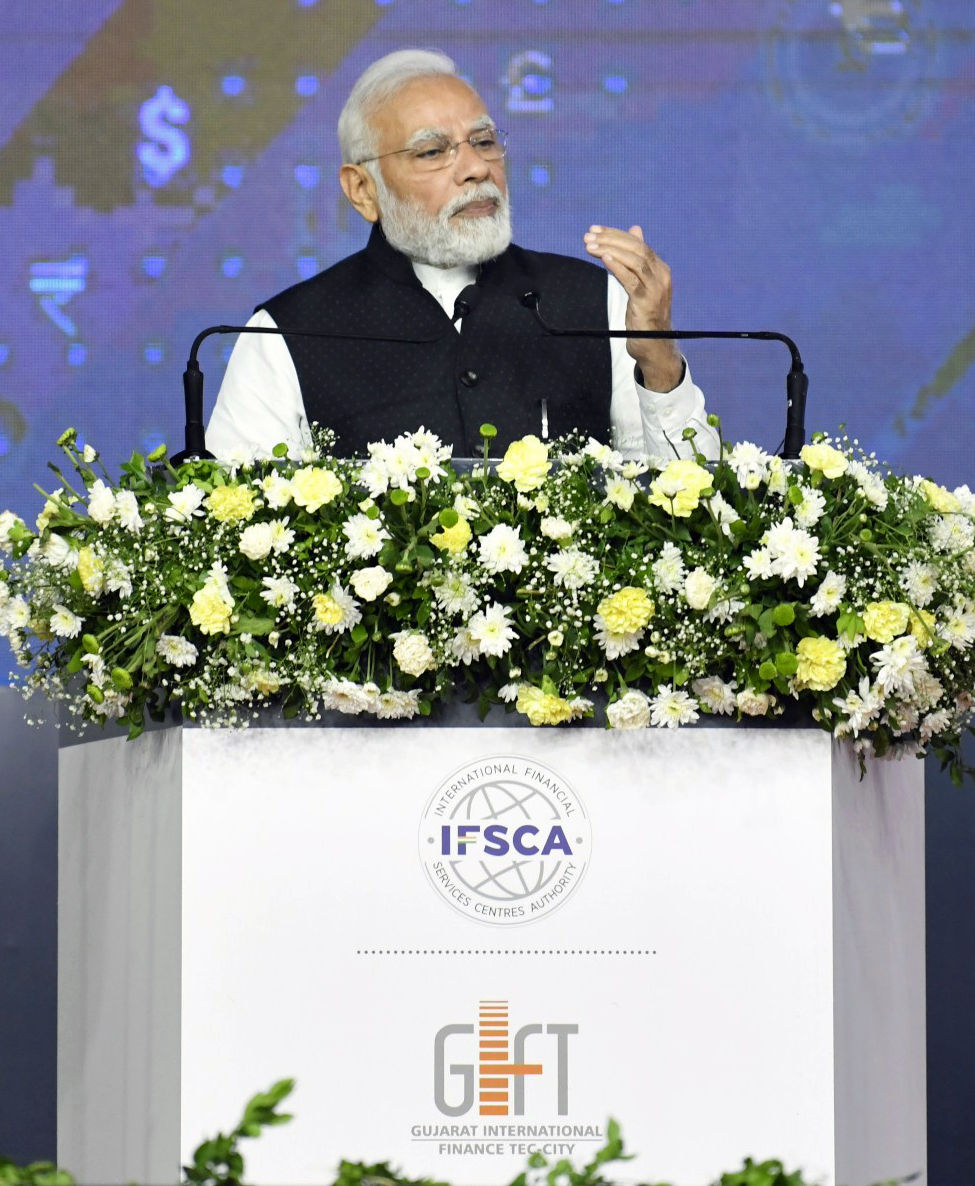This gives it the necessary flexibility to adapt to evolving scenarios in India and the world.
In 2013, then Prime Ministerial candidate, Narendra Modi made the boldest reformist statement by an Indian politician of note, when he said that government had no business to be in business. Now, eight years after ascending to the Prime Minister’s Office, Modi has made yet another very bold statement on economic policy by speaking out against the “Revri culture” of freebies. The pervasiveness of public sector enterprises and the rampant culture of freebies are perhaps the most toxic hangovers from the pre-1991 era more than 30 years on. Even the BJP is not immune from “socialist” economics, but the Prime Minister continues to show that he is willing to challenge received wisdom and orthodoxies. On occasion, he even challenges the entrenched beliefs of the economic right. He is not a prisoner of ideology.
The Prime Minister’s ability to think differently is a great asset. It is particularly important at a time when the global economy is passing through its most challenging time in at least 40 years. At a time when much of the world, whether the advanced economies or emerging economies, loosened their fiscal purse strings and activated their currency printing machines to counter the acute slowdown brought about by the pandemic, Modi chose the path of relative fiscal prudence, defying the advice of most economists. Now, as several countries begin to suffer the consequences of their actions, India stands out as an island of stability. The advanced economies are grappling with inflation that is nearly double digits, while also facing the prospect of recession. Several emerging economies, including Sri Lanka and Bangladesh in the neighbourhood, are seeking international assistance to stay afloat with growth collapsing. Compare that to India where inflation is still moderate at 7% and real growth impressive at 7%.
But the PM is aware of the potential dangers that lurk because of fiscal excess, particularly by states. Hence, his warning on “Revri culture”. The Nobel Prize winning economist Milton Friedman had once explained the phenomenon of inflation using alcohol as a metaphor for printing money. That the temptation of printing money was like the temptation of drinking alcohol; that the initial outcomes are indeed quite good; before the intoxication and hangover arrive. Revri provides a similar idiom; very tempting sweet delicacy; initial sugar highs; before chronic diabetes sets in.
But is the PM contradicting himself since he has been a great proponent of welfare? No. There is a difference between welfare and freebies. First of all, a country’s level of income, population and tax collection determine what is an affordable or sustainable spend. Richer countries can afford to redistribute more freebies than poor countries. But even they have limits. Anything that crosses the limit of affordability is a freebie. Second, the target population matters. If a subsidy or benefit is being given indiscriminately to all, it is a freebie. If it is targeted to the people who most need it, it is welfare. So, an MGNREGA is not a freebie because it is only taken up by those who have no other means of livelihood and need the MNREGA wages to survive. Third, there are some subsidies or interventions which can actually raise the productivity of deprived sections and help them contribute to the economy. Building toilets is one example because that eliminates several debilitating health problems. Providing free food and subsidised nutrition to children is another. On the other hand, providing free electricity to middle class and rich farmers is unambiguously a freebie as is subsidising petrol and diesel; as is subsidising middle-class students for college or university is.
It is brave of the PM to broach the subject since announcing freebies is such a routine part of the political economy and perhaps even popular. But it is required as the world grapples with the consequences of fiscal excess.
Right wing economists may rejoice the PM’s fiscal conservatism and general distaste for government-owned business, but they would be unhappy with his willingness to adopt strategic industrial policy, whether through Production-Linked Incentives, moderately higher import tariffs and targeted subsidies for particular sectors like electronics and renewable energy. The PM’s decision to adopt industrial policy under the banner of Atmanirbhar Bharat is actually ahead of the global curve. Even free market countries like the US are now resorting to industrial policy to support high tech industries and to compete with China’s dominance in manufacturing. Modi’s strategy is creating new levers for growth even as fiscal and monetary policy are constrained by circumstances. It is responsible for placing India in pole position as an investment destination as countries look for alternatives to China. The fact is that growth of manufacturing is the best way to deliver better jobs to the people, and trade liberalisation by itself did not deliver. The new industrial policy is not like the pre-1991 one. It is performance-based and limited in time and scope.
In essence, PM Modi’s policymaking is an outcome-oriented one rather than an ideologically driven one. That gives it the necessary flexibility to adapt to evolving scenarios in India and the world. In a period of unprecedented churn, this flexibility serves India well. Modi’s success lies in defying convention—from both the left and right—and laying out a unique path to success.
The author is Chief Economist, Vedanta.

